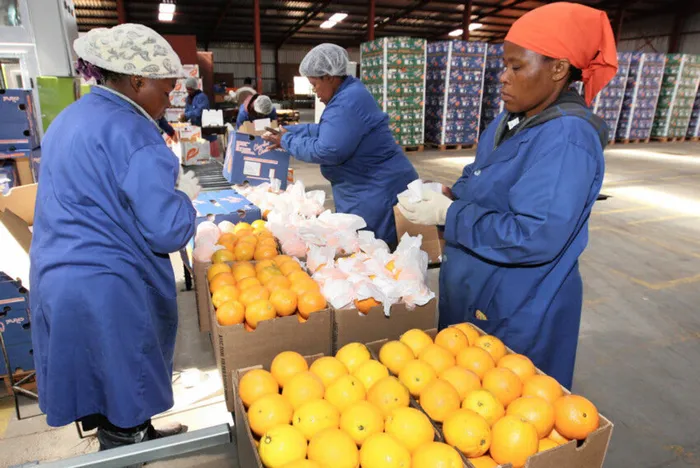South Africa's agri-food trade with the EU declines amid rising barriers
AGRICULTURE

South Africa's agricultural exports mostly include a range of meat products, grains, oilseeds, and fruits. The findings highlight a striking trend, with nearly half of total EU agri-food imports directed towards Central European countries, while Northern and Southern EU nations each represent about 20%.
Image: : Simphiwe Mbokazi Independent Newspapers
A new study conducted by researchers at Stellenbosch University (SU) in South Africa and Mendel University in Brno, Czech Republic, has indicated a concerning decline in South Africa’s agri-food trade with the European Union (EU).
The decline is attributed largely to increasing trade barriers and ongoing disputes that are reshaping the trade landscape.
Published in the journal Agrekon, the study provides a thorough analysis of how the EU’s agri-food import practices are deteriorating the competitiveness of South Africa’s agricultural sector.
The researchers categorised agri-food products into four distinct groups: bulk commodities, processed intermediate goods, horticultural products, and consumer-ready goods. Among these, citrus, grapes, wine, apples and pears, and avocados emerge as the top five agri-food exports to the EU.
The findings highlight a striking trend, with nearly half of total EU agri-food imports directed towards Central European countries, while Northern and Southern EU nations each represent about 20%.
In contrast, Eastern EU countries have begun to carve out a smaller, yet growing, share of imports.
This evolution raises critical questions about the sustainability of South Africa's agri-food exports, which had seen consistent growth over the past twenty years but are now stifled by heightened challenges in the trade environment.
The analysis revealed that while exports flourished between 1999 and 2019, growth faced a noticeable downturn following the global financial crisis, with sluggish recovery attributed to the emergence of non-tariff barriers (NTBs).
The researchers pointed out that shifting demand patterns are prevalent across different regions of Europe. While the Eastern EU experienced a surge in agri-food imports post-2004—following its accession to the EU—growth rates have since declined significantly, dipping from an average of 6.5% to just 3.5% after the recession.
As South Africa navigates this increasingly complex trade environment, it becomes imperative for policymakers to engage in meaningful dialogue with their EU counterparts, reassessing NTBs, resolving disputes that hinder market access, and assisting local exporters in adapting to stringent regulatory conditions.
Investment in critical infrastructure, including container ports and electricity supply, emerges as a vital strategy to mitigate transaction costs and uncertainties, thereby enhancing competitiveness against EU producers who frequently benefit from government subsidies.
Farming association TLU SA general manager, Bennie van Zyl, emphasised the importance of not only maintaining existing markets but also ceaselessly developing new ones.
“Markets are a huge component of the whole production of the agriculture sector for us from the farming side and from our produce, so you have to make sure that you keep those markets intact and that you comply with their needs and their specifications,” he said.
Van Zyl added that a stable environment would enable farmers to fully exploit opportunities, underscoring that profitability is crucial, especially in the context of export potential influenced by the exchange rate.
Francois Rossouw, the CEO of the Southern African Agri Initiative (Saai), echoed these sentiments, noting that while the EU remains South Africa's most significant agricultural market, robust trade agreements alone were insufficient for sustained growth.
“For family farmers, the real barriers are no longer just tariffs – they are the non-tariff measures, regulatory disputes, and the cost of doing business due to our own infrastructure constraints,” Rossouw said.
“Every delay at a port, every power outage, and every unresolved market access dispute erodes our competitiveness against heavily subsidised European producers.
“We need a dual strategy: on the one hand, engaging the EU directly to reduce unnecessary non-tariff barriers and resolve disputes, and on the other, investing heavily in our domestic logistics, energy stability, and compliance capacity so that our exporters can meet the EU’s strict requirements without incurring crippling costs.”
Rossouw said that South Africa should, at the same time, be targeting faster-growing EU regions and diversifying into high-demand products like horticulture while also building new market opportunities beyond Europe.
“If we get this right, we can protect our hard-earned market share in the EU and open new doors for South African agriculture globally.”
BUSINESS REPORT